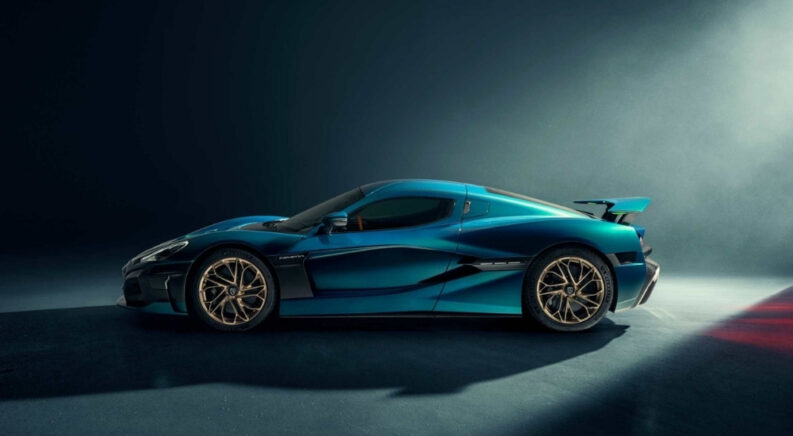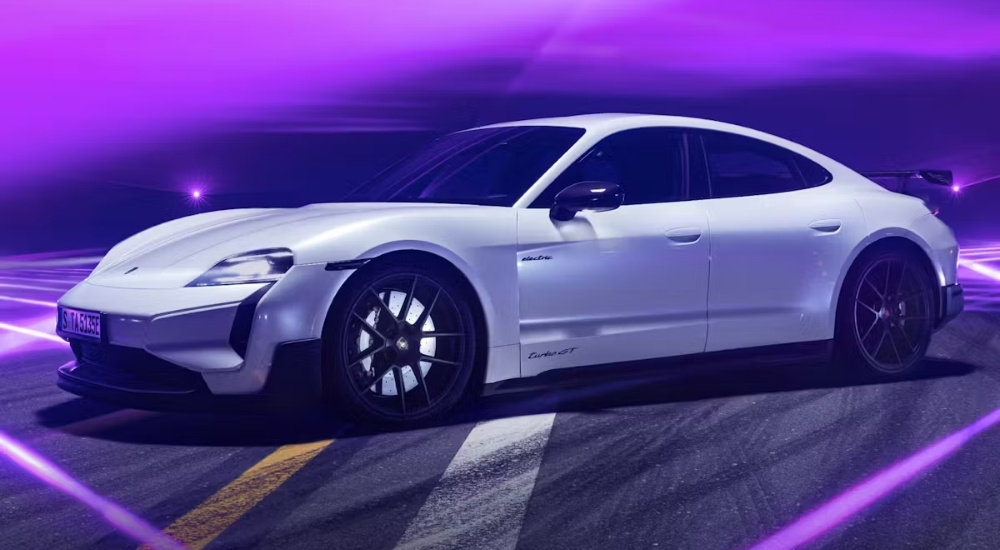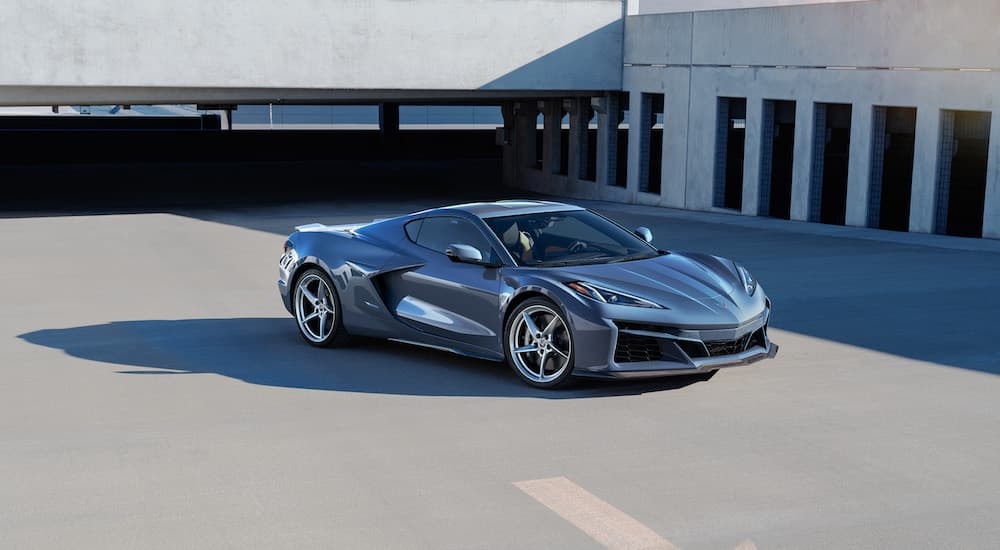We seem to be missing something. If you recall, way back to the beginning of the era in which car manufacturers made their all-electric promises, we were told there were going to be all sorts of electric cars in the coming years. It seemed like announcements were coming almost daily. Tesla, Rivian, Ford, and Chevy announced and delivered electric pickup trucks. Electric compact SUVs, electric three-row SUVs, and even electric off-road vehicle concepts were presented to the public as upcoming projects and concepts that were in development. For the most part, we’ve seen these plans come to fruition.
What about the sports cars? At first, it seemed like a far-off goal, especially when range and horsepower were still being figured out. But this is 2025, and we have access to every type of electric vehicle except sports cars. Are we getting electric sports cars, or are automotive manufacturers hoping we’ll decide it was all just a collective pandemic fever dream?
What We Were Promised
To be fair, we’re promised a lot of things by the auto industry. The Renault EZ-ULTIMO is one concept that many drivers would be thrilled to see on the roads. At the same time, most of us agree that an autonomous vehicle inspired by the boutique hotel experience is a little out there. Drivers in 2018 simply wouldn’t have been ready.
On the other hand, concepts like the new Tesla Roadster seemed pretty reasonable when they were announced. They just haven’t happened yet. The Tesla Roadster is supposed to be available in 2026, but we know nothing about it. It’s currently just the same collection of ideas and speculation it has been since November 2017.
We were also led to believe that of the 40 all-electric vehicles Ford promised, at least a few would be performance-oriented. At least, that’s how things appeared to be going after the release of the 2021 Mustang Mach-E. The top GT trim has long boasted a 0-60 mile per hour sprint of just 3.5 seconds. Sure, the Mach-E is an SUV, but imagine how fast a smaller coupe could be.
What We Have Instead: EV Supercars and Sedans
Perhaps the most surprising twist is that we have electric supercars, but we don’t have electric sports cars. Of course, when we look at the manufacturers producing electric supercars, that fact becomes less shocking. The 2025 Lotus Evija, for example, comes with a $2.4 million price tag that keeps it out of reach for mere mortals. However, we can’t help but get a little wistful at the prospect of 1,972 hp and 1,254 lb-ft of torque. Just keep reminding yourself that it’s not street legal.
Rimac, the newcomer from Croatia, has also posted some very tasty stats for the 2025 Nevera. Equipped with a four-motor electric powertrain, drivers of the Rimac Nevera will enjoy a standard combined 1,813 hp and a combined torque of 1,741 lb-ft. The journey from 0-60 miles per hour takes a mere 1.9 seconds. As with the Lotus, the Nevera is very rare, very expensive, and very impractical as a daily driver.
Then there’s the Porsche Taycan Turbo S. When you think of a Porsche, it’s hard not to think of sports cars, except the Taycan is a sedan. It has four doors, five seats, and standard all-wheel drive, but it also has a top speed over 160 miles per hour and a 0-60 mph time of just 2.3 seconds. That’s technically supercar territory compared to gasoline-powered models.
The Lucid Air and BMW i4 also have really quick acceleration. But they’re still sedans, with cargo space in the rear and a frunk. Can we really call a sedan a sports car?
What We Have Instead: Hybrid Sports Cars
If we stick to the strict interpretation that a sports car must be a street-legal coupe, we have to abandon our all-electric principles. Instead, we have been granted a whole bunch of enticing hybrid sports cars.
The 2025 Lexus LC 500h is a pretty quick machine, with a top speed of 155mph and a 0-60 mph acceleration time of 4.7 seconds. It combines a V6 engine with a lithium-ion battery and motor system for a grand total of 354 hp. It is also quite street legal. With its daring aerodynamic design, this hybrid sports car has a combined fuel economy of 29 MPG, significantly higher than the gas-powered Lexus LC 500, which has a combined fuel economy of 18 MPG. Alas, it has been discontinued for 2026.
Of course, there is also the Corvette E-Ray. You’re not wrong if you had it in your mind that Chevy had previously announced an all-electric Corvette. For now, we have a plug-in hybrid version. The closest it comes to being a pure EV is its Stealth Mode, which has an all-electric range of just three or four miles.
However, let’s not downplay how cool the Corvette E-Ray really is. Chevy combined the famous LT2 6.2L V8 engine with a front-axle electric drive unit for a combined 655 hp. The electric drive unit also adds an extra 125 lb-ft of torque to the front end, which acts in tandem with the 470 lb-ft of torque the gas engine supplies to the rear wheels to create a truly amazing all-wheel drive acceleration experience. But it’s still not an all-electric sports car.
When and How Will the EV Sports Car Drought End?
Since they say not to put all of your eggs in one basket, we should probably not lean on the Tesla Roadster to save us from our EV sports car blues. However, a few recently announced projects might just come to fruition.
Audi has announced the revival of the beloved TT as an all-electric sports car. Planned for a 2026 or 2027 release, the design is by Massimo Frascella, formerly of Jaguar and Land Rover. Audi also states that the electric TT will share the same Volkswagen Group’s SSP architecture, the same as used by Porsche’s EVs.
Lexus is teasing an all-electric supercar. Rumors tout over 1,000 hp and a manual shift simulator. The hold-up is that the plans are based around solid-state batteries by Toyota, which aren’t due until 2027 or 2028.
The Polestar 6 Roadster is also a compelling upcoming option. The two-seat convertible is designed to be not just exciting but also sustainable, with many recycled and recyclable components.
Where Are the eSports Cars?
Looking at the upcoming prospective electric vehicles from manufacturers such as BMW, Aston-Martin, and Bentley, it appears that sedans will soon be making a big comeback. SUVs, trucks, and cargo vans are still on the docket, too. Even the most trustworthy sports car brands, such as Ferrari and Lamborghini, have alluded to upcoming electric models, but what has been released so far seems to indicate that both brands are going with grand touring hatchback-type concepts.
Could it just be that sports cars are born to be gasoline-powered? Or could it be that it’s time we redefine what a sports car is or can be? Maybe four doors and a backseat can be “sporty” after all. We’ll just have to see what the future of automotive manufacturing brings us in the coming years.






